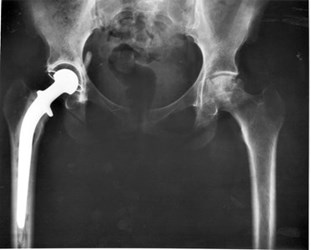Medicare Proposes Bundled Payment Restructuring For Knee, Hip Replacements
By Jof Enriquez,
Follow me on Twitter @jofenriq

The U.S. Centers for Medicare and Medicaid Services (CMS) have announced plans for a new bundled payment model for knee and hip replacement procedures. The five-year program, slated to begin in January 2016, could slash Medicare spending by at least $150 million.
Reuters reports that CMS will require some 800 hospitals in 75 geographic areas across the United States to participate in a quality outcomes-based program, where incentives and penalties are given depending on how Medicare beneficiaries fare up to 90 days after hip and knee replacement surgery. The hospitals, which will mandatorily be covered by the new bundling scheme, range from facilities in major cities like New York and Los Angeles, to smaller areas such as Lubbock, Texas, and Flint, Mich., said CMS CMO Patrick Conway.
CMS says the number of knee and hip replacement surgeries reached 400,000 in 2013, and such surgeries cost Medicare about $7 billion in hospital bills each year. The new bundling program would affect one-fourth — about 100,000 —procedures, netting some $150 million in cost savings.
“Hospitals and physicians would have an incentive to work together to deliver more effective and efficient care,” said Sylvia Mathews Burwell, Health and Human Services secretary, in a conference call with reporters, Bloomberg reports. Other hospitals have participated in similar CMS programs, albeit on a voluntary basis. CMS says requiring more hospitals to participate in these programs will give the government better data on whether the initiative works. The Obama administration has been working to bring down Medicare spending, which reportedly ballooned to $586 billion in 2013.
“You have an administration that is very committed to moving these advanced payment models along, and bundling is one of the ones that they’re most optimistic about,” Dan Mendelson, CEO of the consulting firm Avalere Health, told Bloomberg. “You can have more accountability and ultimately lower costs.”
Besides bundling, CMS also has implemented an alternative payment program called Pioneer Accountable Care Organizations (ACO). CMS claims that program already has saved Medicare about $400 million in the two years since its implementation.
According to Bloomberg, Stryker Corp., Zimmer Biomet Holdings Inc., and Johnson & Johnson are the biggest makers of artificial hips and knees. These manufacturers and their hospital clients could be forced to perform hip and knee replacements at lower costs, owing to the implementation of the new bundling scheme, starting next year.
However, Healthcare Dive notes that some hospitals forced to participate are not ready to meet quality metrics, because they have not invested in IT infrastructure and care coordination models to lessen the risk of complications and readmissions. These facilities, therefore, may end up incurring more penalties than incentives from Medicare. At least one stakeholder says CMS should stick to a voluntary implementation.
"A voluntary, national program would ensure that only providers who are ready to take on this challenge enter the program, avoiding unintended consequences," said Premier Senior VP Blair Childs, according to Healthcare Dive.
CMS is accepting comments on the proposal to restructure bundled payments through September 8.
